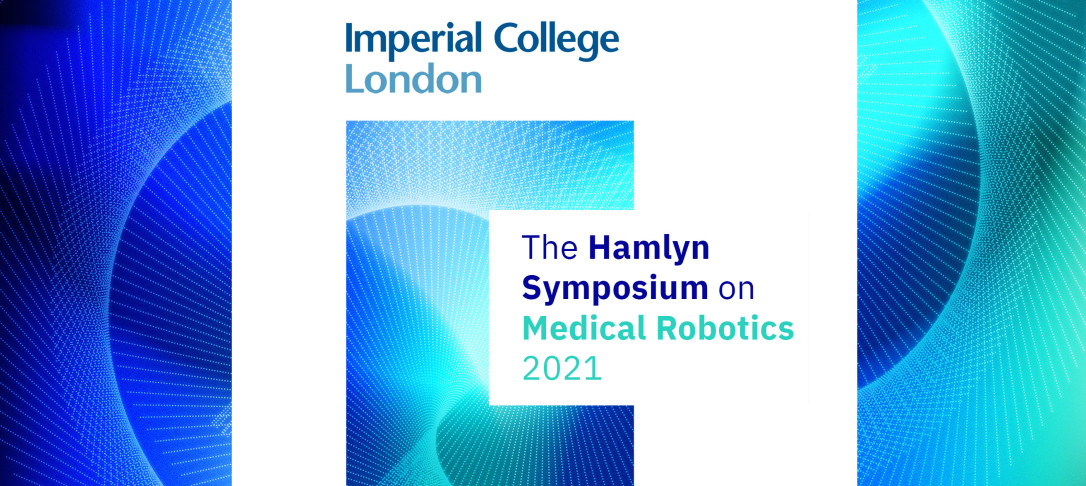
The Hamlyn Symposium on Medical Robotics (HSMR) is now in its 13th year and has provided an annual forum for surgeons and engineers from across the globe to network and explore the latest developments in medical robotics. Every year researchers, clinicians and engineers are invited to submit papers on a range of topics covering clinical specialities in Urology, Cardiac Surgery, Neuro Surgery, Thoracic Surgery, General Surgery, Gynaecology, ENT, Orthopaedic and Paediatric Surgery.
This year we plan to build beyond the previous achievements and take the symposium to even higher successes with the theme of ‘Surgery and Beyond’. We have already received full CPD accreditation from the Royal College of Surgeons and to complement this we are planning a programme with increased focus on clinical practitioner centered talks, workshops and presentations.
Hamlyn Symposium on Medical Robotics 2021:
Featured Speaker Professor Joseph Wang
– Micromotors Go In-Vivo: From Test Tubes To Live Animals
 We are pleased to announce Professor Joseph Wang, Distinguished Professor and SAIC Endowed Chair, is one of the featured speakers of the Hamlyn Symposium on Medical Robotics 2021 (#HSMR21).
We are pleased to announce Professor Joseph Wang, Distinguished Professor and SAIC Endowed Chair, is one of the featured speakers of the Hamlyn Symposium on Medical Robotics 2021 (#HSMR21).
Professor Wang will give a talk on ‘Micromotors Go In Vivo: From Test Tubes to Live Animals’ followed by a Q&A session.
Abstract
Nanoscale robots that can effectively convert diverse energy sources into movement and forces represent a rapidly emerging and fascinating robotic research area. Such nanoscale robots offer impressive capabilities, including greatly enhanced power and cargo-towing forces, multi-functionality, easy surface functionalization, and versatility. The new capabilities of modern nanorobots indicate immense potential for a variety of biomedical applications, and should have major impact on disease diagnosis, treatment, and prevention [1]. Recent in vivo applications using different types of biocompatible and biodegradable microrobots will be illustrated, including enhanced drug delivery towards enhanced treatment of stomach bacterial infection, active vaccine delivery, autonomous gastric fluid neutralization, the ability to selectively localize at desirable segments of the GI tract, or efficient intracellular delivery of functional proteins and nucleic acids.
References:
- J. Li, B. Esteban-Fernández de Ávila, W. Gao, L. Zhang, J. Wang, Micro/nanorobots for biomedicine: Delivery, Surgery, Sensing, and Detoxification, Science Robotic 2 (2017) eaam6431.
Biography
Joseph Wang is Distinguished Professor, SAIC Endowed Chair, and former Chair of the Department of Nanoengineering at University of California, San Diego (UCSD). He is also the Director of the UCSD Center of Wearable Sensors and Co-Director of the UCSD Center of Mobile Health Systems and Applications (CMSA). He served as the director of Center for Bioelectronics and Biosensors of Arizona State University (ASU) before joining UCSD. Prof. Wang has published more than 1175 papers, 11 books and he holds 30 patents (H Index=176, >130,000 citations). He received 2 American Chemical Society National Awards in 1999 (Instrumentation) and 2006 (Electrochemistry), ECS Sensor Achievement Award (2018) and 5 Honorary Professors from Spain, Argentina, Czech Republic, Romania, China and Slovenia. Prof. Wang has been the Founding Editor of Electroanalysis (Wiley), is RSC, ECS and AIMBE Fellow and a Thomson Reuters Highly Cited Researcher (2015-2020). His scientific interests are concentrated in the areas of bioelectronics, wearable devices, biosensors, nanomachines and microrobots, flexible materials, bionanotechnology, and electroanalytical chemistry.